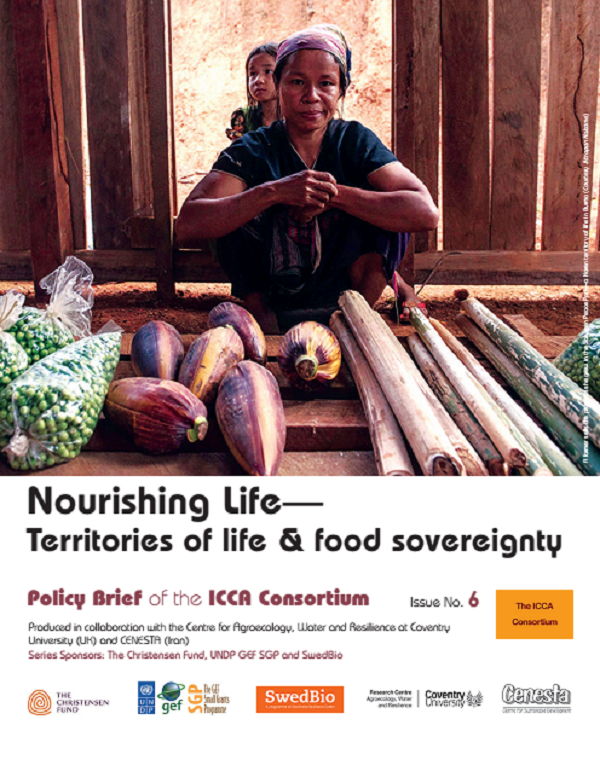First published on 11/15/2019, and last updated on 12/19/2019
Pimbert, M.P. and G. Borrini-Feyerabend, 2019. Nourishing life— territories of life and food sovereignty,
Policy Brief of the ICCA Consortium no. 6., ICCA Consortium, Centre for Agroecology, Water and Resilience at Coventry University and CENESTA, Tehran.
This Policy Brief focuses on the contributions that the territories and areas governed, managed and conserved by custodian indigenous peoples and local communities— a complex phenomenon abbreviated as ‘ICCAs – territories of life’— make to the food sovereignty of the peoples and communities themselves—another complex phenomenon at the heart of the Via Campesina movement. Drawing from eight inspiring cases, we find community custodians of territories of life that are well organised, knowledgeable, self-aware, and possess a strong sense of identity and pride. All these characteristics nourish their capacity to develop ‘localised’ and culture-rich food systems that sustain the health of both their custodian communities and territories. We thus stress that territories of life and food sovereignty can be mutually supportive in virtuous cycles. We suggest that the movement to add visibility, strength and recognition to ICCAs—territories of life and the movement to foster food sovereignty throughout the world may find it advantageous to engage in knowledge sharing and enhanced mutual support. This Brief lists and discusses specific options to advance that cooperation. It offers recommendations for civil society organisations and networks, and for legislators, policymakers and government officials willing to halt the drivers of planetary disaster and enhance the positive forces that foster more just and sustainable food systems, better conserved biological and cultural diversity, and more empowered and healthier communities.
